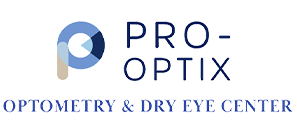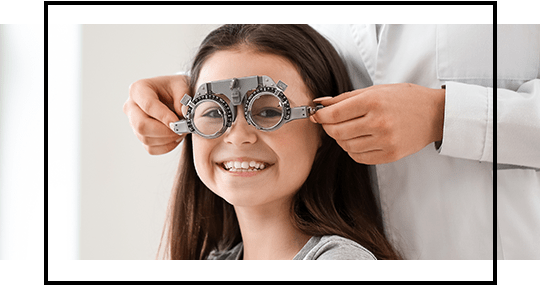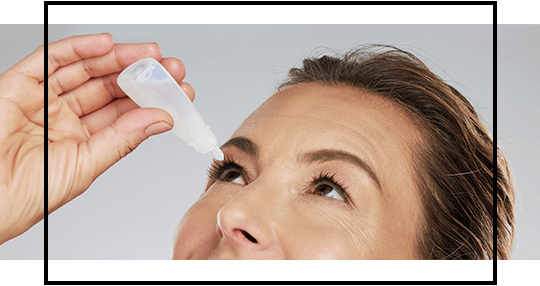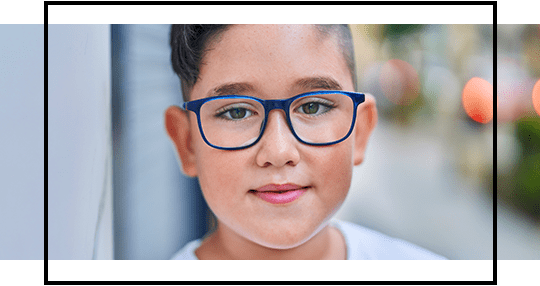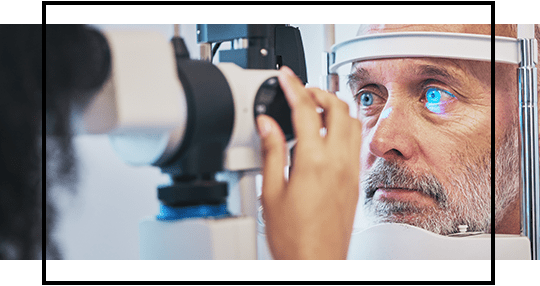Proactive Vision Care for Nearsightedness
Kids lead active lives packed with schoolwork, playtime with friends, and extracurricular activities. Nearsightedness (myopia) can impede their ability to keep up with the things they love. And, if left unchecked, their prescription can worsen as they grow.
By managing myopia progression, our team of eye doctors in Houston can support your child’s long-term eye health and safeguard them against future sight-threatening complications.
At Pro-Optix Optometry & Dry Eye Center, we’re on a mission to help kids feel at ease while enhancing their overall eye health. By crafting an individualized treatment plan, we strive to support their vision for life. We service Houston, Tanglewood, Galleria, Memorial, and surrounding areas.
Book AppointmentWhat Is Myopia?
Myopia (also called shortsightedness or nearsightedness) occurs when the eyeball becomes elongated, or the cornea is steeply curved. The longer shape causes distant objects to appear blurry since light has to travel farther within the eye before it can focus on the retina.
What Causes Myopia?
Myopia development is mainly influenced by genetics and environmental factors, such as prolonged activities involving close work (like reading and screen time).
It’s common for children to be diagnosed with myopia between the ages of 6–12, with its progression stabilizing when axial (lengthwise) eye growth slows down once they reach about age 20.
However, myopia can also develop in early adulthood and is linked to advanced education (such as college or university) and longer periods of studying.
Myopia Management Can Help Decrease Risks
Myopia is a progressive vision disorder that can range from mild inconvenience to severe impairment. And it’s becoming more prevalent, with health experts predicting that about 50% of the world’s population will have myopia by 2050. This concerning rise is linked to screen reliance and a slew of near-vision tasks that we face on a daily basis.
Higher myopia can also increase the risk of severe vision impairment, including retinal detachment, glaucoma, macular degeneration, and cataracts.
Managing myopia can decrease these risks and slow down the need for a stronger prescription.
Screen Time & Myopia
Digital screens are an integral part of our daily lives. Kids now rely on computers for education and entertainment, from the classroom to the home. While near-vision tasks have always been associated with myopia, today it’s not just the bookworms that are at risk of developing higher levels of nearsightedness.
Prolonged screen time has been found to lead to myopia development in children and teenagers, and excessive screen time is also linked to digital eye strain, dry eye, and poor posture, which can adversely affect physical health in several ways.
3 Rules Kids Can Follow
Creating rules kids are inclined to follow is no simple task, but there are 3 simple rules that can make it easier for kids of all ages to be kind to their eyes.
The Elbow Rule
Keep an elbow-to-hand distance between the eyes and screens or books—no measuring tools required! It’s an easy measurement your child can remember to avoid bringing objects too close to their eyes.
The 20-20-20 Rule
Kids (and adults) should take regular breaks from reading or screen time to reduce high demands on their visual systems.
Eye doctors recommend the 20-20-20 rule: Take a 20-second break every 20 minutes to look away from your screen or reading material. Focus on something at least 20 feet away to reset your visual system.
The 2-Hour Rule
Health experts recommend that infants avoid screen time altogether, and kids under the age of 4 should have no more than 1 hour of sedentary screen time a day. As for kids aged 5–17, their recreational screen time should be limited to 2 hours every day.
Outside of school work, try to limit your kid’s leisure screen time to 2 hours per day. Setting a timer can help kids keep track of their screen time.
Comprehensive Myopia Management
Effective myopia management requires a comprehensive approach. That’s why we look at the whole picture, taking into account your child’s environment, lifestyle, eye health, and prescription.
Whether your little one is displaying early signs of myopia or has been wearing glasses for a while, we work closely with you and your child to provide a personalized solution that meets their unique needs.
Our goal is to support your child’s overall eye health and enhance their quality of life. Among our recommended methods for myopia management are multifocal contact lenses and atropine eye drops.
Multifocal Contact Lenses
Traditional prescription contact lenses may fix blurry vision, but they don’t prevent myopia progression. But multifocal contact lenses use 2 focusing powers (prescriptions) to correct nearsightedness while simultaneously slowing eye growth. The bullseye design refocuses peripheral light to focus correctly on the retina.
FDA-approved MiSight 1-day contact lenses can reduce myopia progression by an average of 59%. Even children as young as 8 years old can comfortably wear their lenses with confidence. The disposable lenses are single-use, so there’s no cleaning or maintenance required.
Atropine Eye Drops
Atropine is a versatile tool in eye care. Optometrists use it to dilate (open up) pupils, allowing us to examine inner eye tissue in detail. This is especially important for kids’ eye exams.
Low-dose atropine eye drops can be an effective technique for managing myopia. The eye drops work by relaxing the eye’s focusing mechanism so that the eyes don’t strain to focus on distant, blurry objects.
The drops are easy to use, too. Applying them before bedtime can make the experience comfortable for your kids, as dilation can cause light sensitivity and temporary blurriness.
Book An Appointment for Myopia Management
Routine eye care for kids plays a crucial role in proactive and preventative vision care.
If your child is displaying signs of nearsightedness, such as frequent eye-rubbing, missing game-changing throws, or struggling to read the board at school, we’re here to help. Early intervention with myopia management can help curb its progression, safeguarding your child’s long-term vision and well-being.
Book your child’s eye exam now to discuss myopia management options.
Book AppointmentVisit Our Location
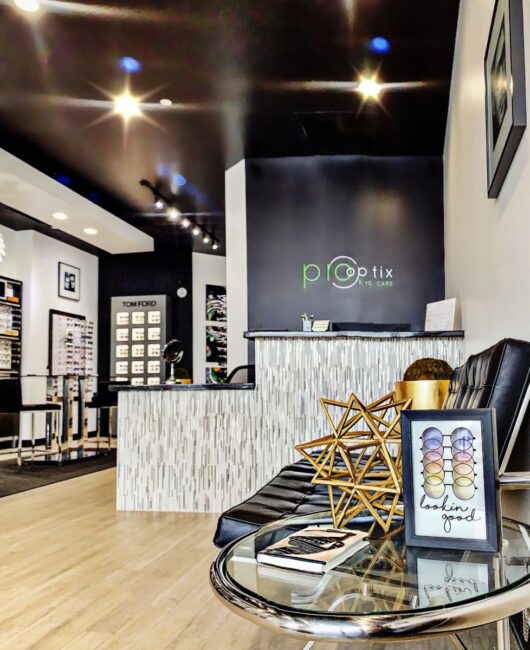
Our Address
- 5885 San Felipe St, Suite 550
- Houston, TX 77057
Contact Information
- Phone: 713-360-7095
- Email: [email protected]
Hours of Operation
- Monday: 10:00 AM – 6:00 PM
- Tuesday: 10:00 AM – 6:00 PM
- Wednesday: 10:00 AM – 6:00 PM
- Thursday: 10:00 AM – 6:00 PM
- Friday: 10:00 AM – 5:00 PM
- Saturday: 9:00 AM – 3:00 PM
- Sunday: Closed

Our Services
Our Brands

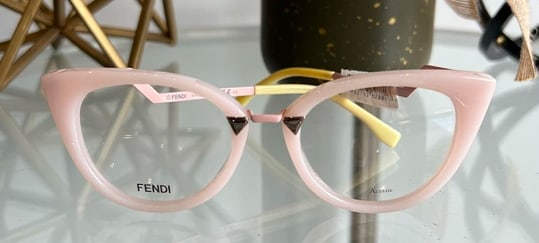
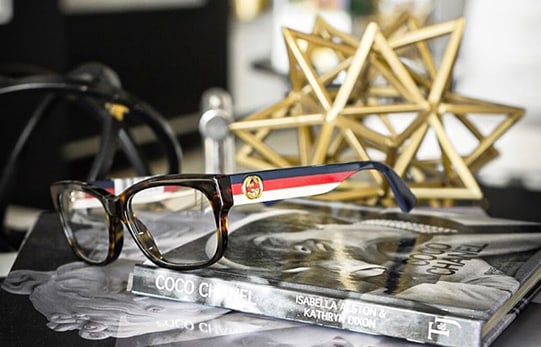





Our Google Reviews

Check us out on Instagram




